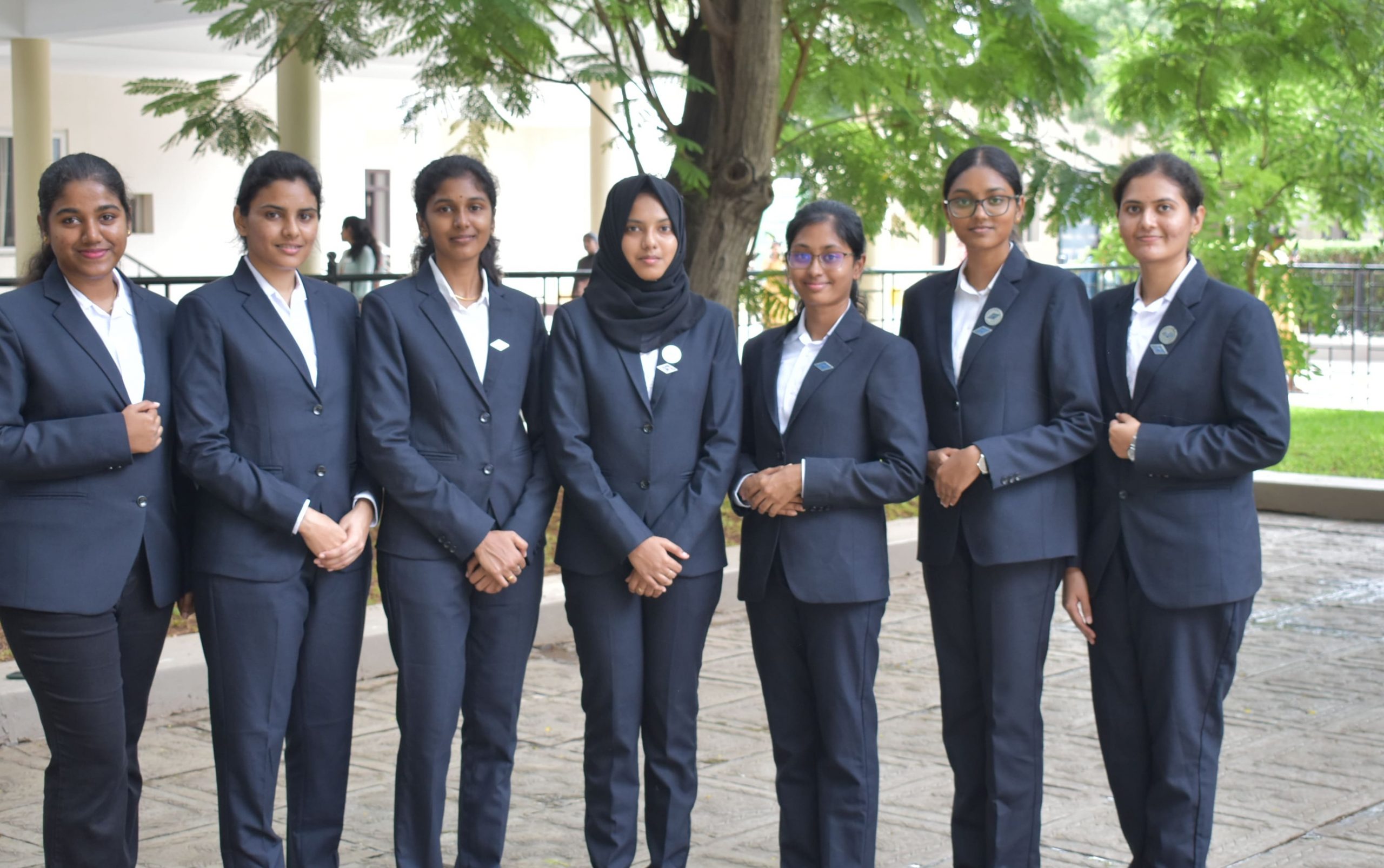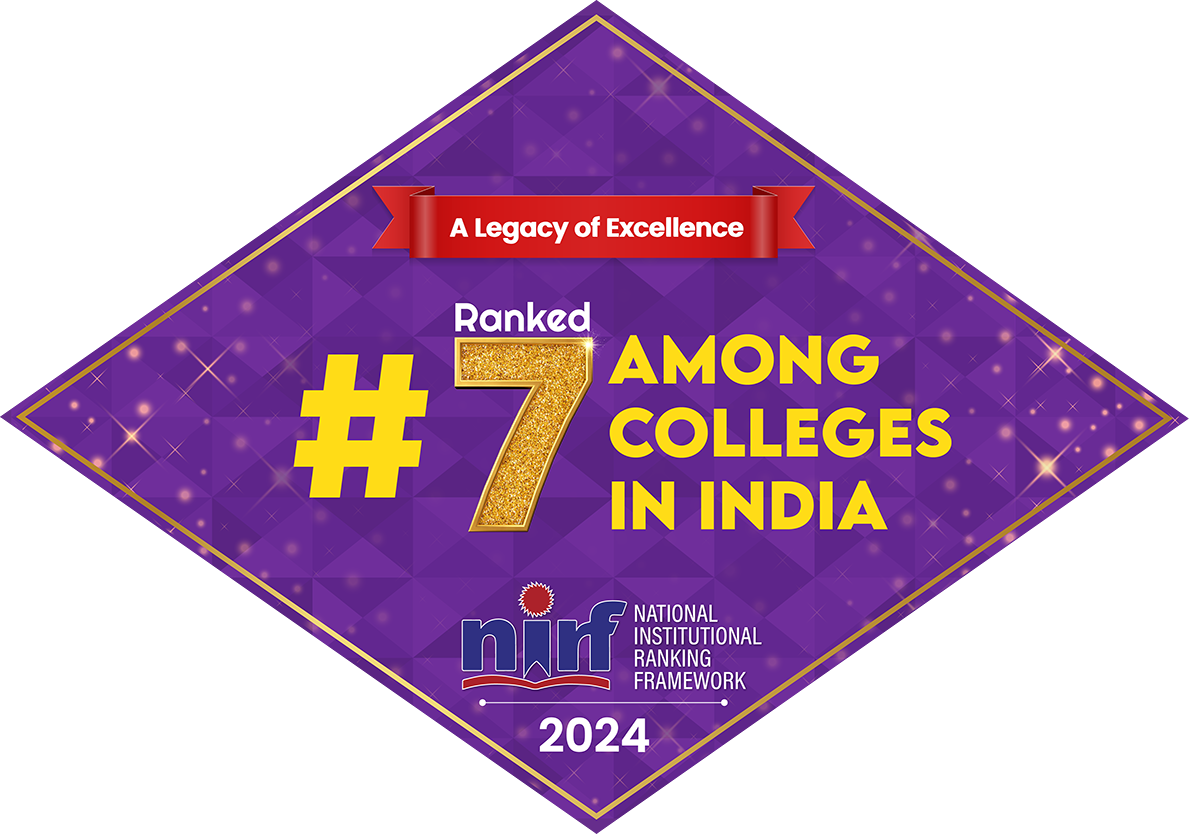- The program offers courses covering evolution, biodiversity, structure and function, information flow, pathways, and transformations of energy and matter.
- It provides practical learning opportunities through internships and projects, helping students grasp core concepts in botany.
- The Department includes a well-maintained Herbarium and Museum, enhancing the teaching and learning of plant forms.
- The majority of faculty members specialize in microbiology and have expertise in research areas such as Bioremediation, Biofuels, Phytomicrobiome, Microtoxins, Biofertilizers, and Biosensors.
- The Department is well-equipped with five laboratories, established with the support of the Management, DST FIST, UGC, and DBT are intended to provide students with ample working space, comfortable reclining, personal cabinets, and a supply of glassware, chemicals, high-end equipment’s and trained technical staff.
- Laboratories are ICT -enabled and have facilitated access to online databases and the UGC INFLIBNET service.
- Plant Tissue Culture Lab – Air-conditioned Plant tissue culture laboratory comprising media rooms, Culture rooms, and Growth chambers. A substantial amount of investigation on micropropagation of endangered medicinal plants and orchids is being carried out by our faculty members and research scholars.
- Microbiology Lab – The Lab is well equipped with all instruments necessary for microbiological research and practicals’s such as Incubator, Autoclave, Centrifuge, Microscope (Compound microscope, electron microscope, fluorescence microscope and stereo microscope), Hot air oven, Hot plate, Analytical balance, pH meter, Deep freezer, Water bath, Homogenizer, Magnetic stirrer, Colony counter, Spectrophotometer, Biosafety cabinet, Laminar airflow hood. The lab is bifurcated into four areas; a sterilization room, Media preparation, culture room and disinfection.
- Plant Biotechnology Lab- The Lab is equipped with all the necessary instruments required for Molecular research on testing and analysis of genetically modified organisms (GMO), genetic transformation of plants, and in vitro propagation techniques. Equipment such as high-speed centrifuges, ultracentrifuge, incubators and shakers, UV-spectrophotometers, Real-Time PCR, horizontal and vertical electrophoresis systems, gel documentation system, plant tissue culture room, and safety cabinets.
- BIRAC EYUVA Lab -Established with the funding support of the Biotechnology Industry Research Assistance Council (BIRAC) by the Department of Biotechnology (DBT), Government of India is equipped with a Fermenter, Ultracentrifuge, Trinocular Microscope, Shaking Incubator to facilitate research in the area of waste valourization with the production of eco-friendly microbial enzymes, biobutanol and microbial oil.
- DBT Builder Lab - In recognition of the DBT Star Scheme, the DBT BUILDER level I program, is sanctioned. Lab comprises high-end equipment such as Floor-model Ultra Centrifuge, Refrigerated Centrifuge, and Nanodrop-Microspectrophotometer. The main focus area of research in this laboratory is plant-derived exosomes as an effective drug delivery system and also support interdisciplinary research.
- Advanced curriculum, delving deep into specialized subjects The program aspires to produce intellectual and proficient botanists by enhancing their skills through advanced curricula like Plant Diversity, Cell and Molecular biology, Plant Biotechnology, Dietetics and Food preservation, Genetic Engineering, Bioinformatics, Energy Science, and Forestry.
- Hands-on Experience with advanced instruments during practical classes
- Experiential learning through field visits, internship programs, and industrial visits
- Industry-offered Internship and Projects
- Bhabha Atomic Research Center (BARC), Mumbai
- The Arya Vaidya Pharmacy, Kanjikode, Kerala
- ICAR-National Research Centre for Banana, Tiruchirappalli
- Tamil Nadu Petrochemical Ltd, Chennai.
- Indian Institute of Food Processing and Technology (IIFPT), Thanjavur
- Institute of Forest Genetics and Tree Breeding (IFGTB), Coimbatore
- Sugarcane Breeding Institute (SBI), Coimbatore
- Siddha Medicinal Plants Garden, Mettur
- Centre of Bioscience and Nanoscience Research (CBNR), Coimbatore
- Awe Care Private Limited Analytical and Research Laboratory, Erode
- Sivasakthi Pharmaceutical Pvt Ltd Coimbatore
- Value Added Course/Job Oriented Course
- Phytopharmaceutical Science with the Collaborating Partner: Sivasakthi Pharmaceuticals PVT Ltd and PSG IMS, Coimbatore.
- Special opportunities that can be availed during the course
- EYUVA UG Research Grant Fellowship are available during the UG Programme, through the submission of innovative ideas that will pave the way for future entrepreneurs. (Every year pitching session will be conducted comprising of five students per team and each student will receive Rs.2500/- per month)
- 15 days Summer Internship Courses can be taken during the course in a foreign university like Oregon State University, Binghamton University, San Diego State University, University of Dar es Salaam, and University of Wisconsin-Milwaukee
- Coaching classes will be conducted for the preparation of CSIR-NET, GATE, and competitive exams
- Global certification
- Certificate course on Venoms and Poisons in collaboration with The University of Reading, London, UK
- Online Certification
- Swayam NPTEL
- NASSCOM
- ICT Academy
- Coursera - online learning courses from top universities and industry leaders
- Field Assistant: 25%
- Lab Technician: 20%
- Microbiologist: 15%
- Plant Tissue Culture Specialist: 10%
- Taxonomist: 10%
- Other roles (Environmental Consultant, Botanical Researcher, etc.): 20%
- Environmental Services: 30%
- Research and Development: 20%
- Pharmaceuticals and Biotechnology: 15%
- Agriculture and Horticulture: 15%
- Other industries (Education, Government, etc.): 20%
- Becoming senior researchers or professors in academic institutions
- Serving in key roles in environmental conservation agencies
- Working with pharmaceutical companies to develop plant-based treatments and medicines
Employment Rate
An impressive 80% of our B.Sc. (Botany) graduates secure employment within graduation, indicating a high demand for professionals with botanical and environmental expertise.
Top Job Roles
Graduates from our B.Sc. (Botany) program pursue various roles in the botanical and environmental domains. Here's a breakdown of the most common roles and the percentage of alumni in each:
Industry Distribution
Our alumni work across a variety of industries, showcasing the broad applicability of botany skills. Here's the industry distribution for B.Sc. (Botany) graduates:
Career Progression
Many of our B.Sc. (Botany) graduates achieve rapid career progression. Approximately 25% reach senior-level or supervisory positions within five years of graduation, indicating the potential for upward mobility in the field of botany and plant sciences.
Average Starting Salary
The average starting salary for B.Sc. (Botany) graduates is approximately Rs. 3,00,000 to 6,00,000 per annum, with opportunities for salary growth as they gain experience and pursue specialized roles or advanced degrees.
Advanced Degrees and Certifications
Around 30% of our graduates pursue advanced degrees such as a Master's in Botany or related fields. Additionally, about 10% earn certifications in areas like environmental management, laboratory techniques, or botanical illustration.
Alumni Success Stories
Our alumni network provides a platform for career support and mentorship. Many of our alumni have achieved notable success, including:









